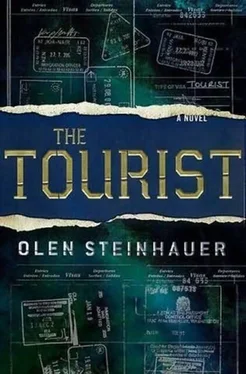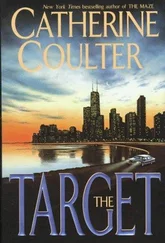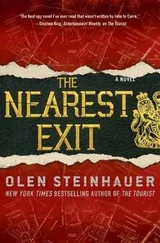Morel's face had turned a deep shade of red as Milo talked. She appeared livid, but didn't shout. Quietly, she said, "Do you have a cigarette? I left mine in the office."
Milo tapped out two Davidoffs and lit hers for her. She took a long drag, exhaled smoke, then looked at the cigarette. "They're not very good."
"Sorry." Through his own smoke, he said, "Did you talk to Angela's neighbors? She took sleeping pills regularly, so they were probably switched on Friday, during the day. A neighbor could have seen the murderer come into the building."
"She took pills every night?"
"Maybe. I don't know."
"That's not very smart," she said, then glared at the surface of the table, perhaps at the ashtray. "Was Angela depressed?”
“She didn't seem so."
Morel took another drag. "We talked to the neighbors. A few descriptions, but in a town the size of Paris workmen and deliverymen show up all the time."
"Anyone suspicious?"
She shook her head. "They say she didn't get many visitors."
"Did you ever talk to her? In the last year, I mean."
"Sometimes. We were in the same business, after all. We remained friends of a sort."
"She came asking for information?"
"Sometimes I asked as well."
"Did she ever ask about Rolf Vinterberg?"
She blinked. "Once, yes. She wanted to know if we had anything on him."
"Did you?"
"No."
"What about Rahman Garang?"
A look flashed across Morel's face-whatever trust she'd felt was evaporating fast. "That was a mistake. We have them sometimes, just like the CIA."
He understood. "I don't care about that. But Angela was working with him, trying to figure out who killed Mullah Salih Ahmad. Did you help with that?"
Again, she shook her head. "The last time we talked was two weeks ago. A week before…" She shifted in her chair. "She was upset about that little terrorist's death. She wanted to know if we'd killed him."
"What did you tell her?"
"The truth. We didn't know anything about it."
Milo didn't doubt this. Two weeks ago, upon learning of Rahman Garang's murder, Angela's suspicions must have run in all directions, and like any good investigator she'd followed up on anything she'd had the ability to follow up on.
Morel looked into her empty espresso cup. "You were talking about Yi Lien earlier.”
“Yes."
"And his laptop computer.”
“Right."
She scratched the back of her neck. "Mr. Weaver, Lien never brought his laptop to the cottage. He never even took it out of the London embassy. It would have been an unforgivable security risk."
"Perhaps you didn't see it."
"I saw everything he brought with him."
"But that's…" He trailed off. He'd wanted to say "impossible," but it wasn't, not really. All it meant was that someone, somewhere between the ferry where Lien had his heart attack and Grainger's office in New York, was lying.
Morel watched the changing expressions on his face. She leaned forward to get a better look. "This is news to you, isn't it?"
There was no sense lying to her, so he didn't.
"I think you should find out why you're getting such bad information."
"I think you're right," he said, and when she didn't answer, he added with a grin: "I hear the novel's pretty good.”
“What?"
"The novel you're supposed to be writing."
"Oh, that," she said, leaning back again. "Some years ago a computer programmer in the Foreign Ministry committed suicide. Nothing suspicious about it, but for a long time she passed information to a Cuban boyfriend. Very devout Marxist, it turned out-you see, in France, Marx is not yet dead. When we went through her belongings, we came across the novel she'd written. She hadn't shown it to anyone. I imagine she thought it would be discovered and published posthumously." She paused. "Instead, I used it to convince the colonel that I'm not only beautiful, but a literary genius. Sometimes I feel sorry for the girl."
Morel got a long-focused, melancholy look in her eyes, so Milo said, "She loved you, you know."
"What?" The word seemed to terrify her.
"Angela. In the cafe, she told me she'd been dumped by a French aristocrat. That was you."
Morel tugged at the hem of the soiled tablecloth. Then: "Aristocrat?"
"Consider it a compliment." She nodded.
Gently, Milo said, "Where did you and she meet?”
“What do you mean?"
"Angela was a private person. Any relationship she had, she'd want to keep secret. Particularly if her lover was a DGSE agent."
Diane Morel raised her shoulders, looking squarely at him, but didn't answer.
"You wouldn't meet in her place, because people would know. You wouldn't meet in your place for the same reason. It would have to be somewhere else."
"Of course. Security is always a consideration."
"Where did you go? Did she have another apartment?"
Morel smiled. "So you've been to her apartment, and you've searched it. And you're hoping there will be another place where she hid the evidence that will prove your innocence. Is that right?"
"In a nutshell."
"Well, you're out of luck. It was a friend's apartment, in the Nineteenth Arrondissement. You won't find anything there. We went there two, three times. After that, we only used hotels. Understand?"
"The address," he said. "Please."
"Rue David d'Angers, number 37, apartment seven. Near the Danube metro stop." He committed it to memory by repeating it back to her; then she said: "Tell me about the man with the red beard."
He blinked at her, and she smiled. "Let's not play games. Just tell me."
"It's the man Angela was seen with during the surveillance on her. Herbert Williams. The one we thought was her contact to the Chinese."
Morel nodded. "Why?"
"Because one of the neighbors reported that, on that Friday afternoon, around four, she'd let in a man with a red beard and a funny accent. He said he was a civil engineer, checking on the foundation of the building."
"Was she with him the whole time?"
"She was just heading out."
"I think that was Angela's murderer."
"I do, too," Morel said, then looked past the bar, where Einner and Lambert were talking animatedly. "The rain's stopped. Are we done?"
"I guess so. What are you going to do about this?”
“About what?"
"This. When you go back to the office."
She pursed her lips in an expression of consideration. "I'll have to report the meeting. There were witnesses, after all." Milo nodded.
"But it doesn't have to be immediate. And once I've typed up the report, it'll certainly take a while to reach your embassy. A day or two."
"Try to make it two, will you?”
“I'll try."
He just about believed her. "Thank you. For being so open."
Morel leaned closer. "When you do finally talk to them, please tell your masters that if anyone else in Paris ends up dead because of their misinformation, your government can forget about having so much flexibility in the French Republic. You understand?"
"I'll pass it along," Milo said.
He felt poor, as if he owed her something for all her cooperation, but had nothing to give. Then he realized that, small as it was, he did have something.
"You know, Angela dealt with the end of your relationship by throwing herself into her work. She told me that. But that's not why she had to take sleeping pills. It's not your fault she died."
Morel began to nod, then changed her mind, remembering who she was, and who he was. "Of course it wasn't my fault. It was yours."
She stood up, crossed to the bar, and tugged at Lambert's sleeve. Milo, from his seat, nodded at Einner's questioning glance, and the Tourist handed back their cell phones. Then they watched the French intelligence agents walk out into the cool, damp afternoon. Both men stared at the empty doorway a few seconds more.
Читать дальше
Конец ознакомительного отрывка
Купить книгу












